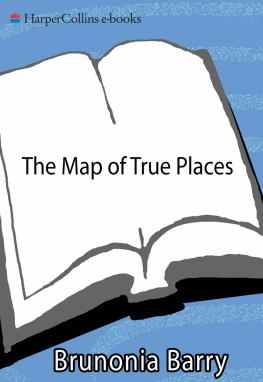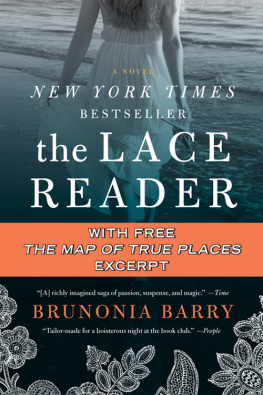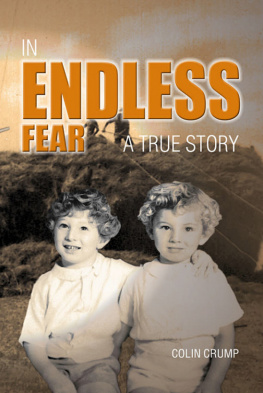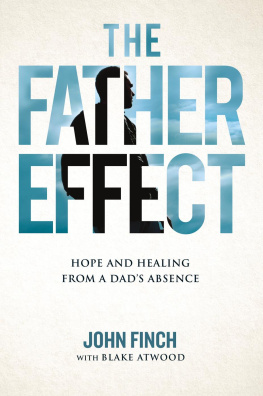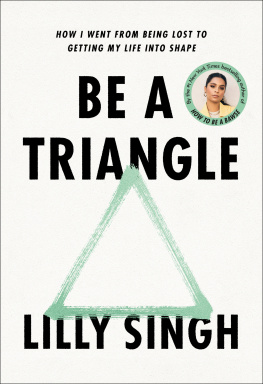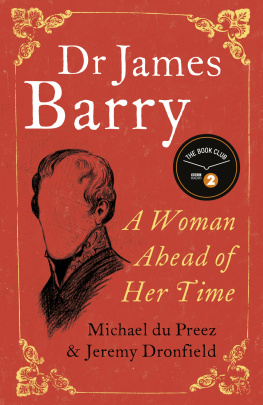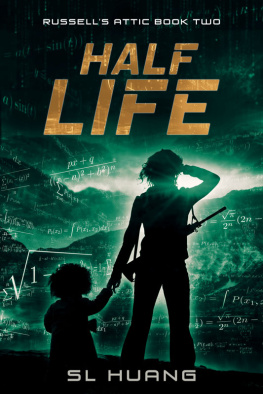For my parents, June and Jack. I miss you every day.
And, as always, for Gary.
It is not down in any map; true places never are.
I N THE YEARS WHEN her middle name was Trouble, Zee had a habit of stealing boats. Her father never suspected her of any wrong-doing. He let her run free in those early days after her mothers death. He was busy being a pirate reenactor, an odd leap for a man whod been a literary scholar all his life. But those were desperate times, and they were both weary from constantly carrying their loss, unable to put it down except in those brief moments when they could throw themselves into something beyond the reach of their memories.
In her fantasy world, the one where she could forgive herself for what happened that year, Zee liked to think that her father, Finch, would have been proud of her skills as a thief. In her wildest dreams, she pictured him joining her adventure, a huge leap for the professor, but not for the pirate he was quickly becoming.
She had a preference for speedboats. Anything that could do over thirty knots was fair game. There was little security back then, and most of the keys (if there were any) were hidden somewhere on the boats themselves, usually in the most obvious place imaginable.
The game was simple. She would pick a boat that looked fast and sleek, give herself exactly five minutes to break in and get the engine started, and head out of the harbor toward the ocean. Once she passed the confines of Salem, she would open up the engine and point the bow straight out toward Bakers Island. Later that night she would return the stolen boat.
There was only one rule. She could never return a boat to the same mooring from which she had stolen it. It was a good rule, not just because it presented an additional challenge but also because it was practical. If she put the boat back on the same mooring, she would be much more likely to get caught. Everyone knows that the last thing any good thief should do is revisit the scene of the crime.
Usually Zee would abandon the boat at one of the public wharves that lined Salems waterfront. Often it was the one at the Willows, the first wharf you came to when you entered the harbor. But when the cops started looking for her, she began to leave the boats in other, less obvious places. Sometimes she would jump someone elses mooring. Or she would leave a boat in one of the slips at Derby Wharf, which made it easy to get away, since she lived so close.
Only one time did she mess up and misjudge the fuel level. She was all the way up by Singing Beach in Manchester when the engine died. At first she didnt believe she had run out of gas. But when she checked the fuel again, her mistake was clear. Fighting the panic that was beginning to overtake her, she tried to come up with a plan. She could easily swim to shore, but if she did, the boat would either drift out to sea or smash against the rocks. For the first time, she was afraid of getting caught. In a strange way, she was grateful that there were no other boats around, no one she could signal for help. Not knowing what else to do, she let the boat drift.
She looked up at the moonless sky, the stars brighter than she had ever seen them, their reflections dissolving in the water around her like an effervescent medicine that seemed to dissolve her panic as well. Here, floating along with the current, staring up at the heavens, she knew that everything would be all right.
When she looked back down at the horizon to get her bearings, she found she had drifted toward shore. A dark outline of something appeared in her peripheral vision, and, when she turned to face it, a wharf came into focus and, on the hill beyond it, a darkened house. She grabbed an oar and began to steer the boat in toward shore, catching the onsweep of tide that propelled it broadside toward the wharf. She grabbed the bowline and jumped, slipping and twisting her ankle a little but keeping the boat from colliding with the wharf. She tied up, securing bow and stern, and scrambled over the rocks to the beach. Then she made her way up the road toward the train station, limping a bit from her aching ankle but not really too bad, all things considered.
Zee wanted to take the train back to Salem, but it was past midnight, and the trains had stopped running. She thought about sleeping on the beach. It was a warm night. It would have been safe. But she didnt want to concern her father, who had enough to worry about these days. And she didnt want to be anywhere in the vicinity of Manchester when they found the stolen boat.
So she ended up hitchhiking back to Salem. Not a smart thing to do, she thought as she walked to the Chevy Nova that had stopped about fifty feet ahead of her and was frantically backing up.
It was a woman who picked her up, probably mid-forties, slightly overweight, with long hair and blue eyes that glowed with the light of passing cars. At first the woman said she was only going as far as Beverly. But then she changed her mind and decided to take Zee all the way home, because if she didnt she was afraid that Zee would start hitchhiking again and might be picked up by a murderer or a rapist.
As they rode down Route 127, the woman told Zee every horror story she had ever heard about hitchhiking and then made Zee give her word never to do it again. Zee promised, just to shut her up.
Thats what all the kids say, but they do it anyway, the woman said.
Zee wanted to tell her that she never hitched, that she wasnt the victim type, and that she had only thumbed a ride tonight to cover a crime shed committedgrand theft boato. But she didnt know what other cautionary tales such a confession might unleash, so she kept her mouth shut.
As she was getting out of the car, Zee turned back to the woman. Instead of saying thank you, she said, in a voice that was straight out of a Saturday-morning cartoon show shed watched when she was a little girl, Will you be my mommy?
She had meant it as a joke. But the woman broke down. She just started crying and wouldnt stop.
Zee told the woman that she was kidding. She had her own mother, she said, even though it wasnt true, not anymore.
Nothing she could say would stop the womans tears, and so finally she said what she should have said all along: Thank you for the ride.
Of course Zee hadnt given the woman her real addressshe didnt want her getting any ideas, like maybe going into the house and having a word with Finch. She had planned to hide in the shadows until the woman drove away and then cut through the neighboring yards to get home. But in the end she just walked straight down the road. The woman was crying too hard to notice where Zee went or how she got there.
T EN YEARS LATER, AS Z EE was training to become a psychotherapist (having outgrown the middle name Trouble), she saw the woman again in one of the panic groups run by her mentor, Dr. Liz Mattei. The woman didnt remember her, but Zee would have known her anywherethose same translucent blue eyes, still teary. The woman had lost a child, a teenager and a runaway, she said. Her daughter had been diagnosed as bipolar, like Zees mother, Maureen, but had refused to keep taking lithium because it made her fat. Shed been last seen hitchhiking on Route 95, heading south, holding a hand-lettered sign that read NEW YORK.
It was the winter of 2001 and ten years since the woman had lost her daughter. The Twin Towers had recently come down. The panic group had grown in size, but its original members had become oddly more calm and helpful to each other, as if their free-floating anxiety had finally taken form, and the rest of the country had begun to feel the kind of terror theyd felt every day for years. For the first time Zee could remember, people in the group actually looked at each other. And when the woman talked about her daughter, as she had every week theyd been meeting, the group finally heard her.

